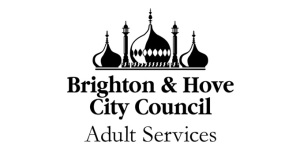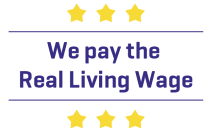The road to a long, healthy life

After the indugences of the holiday season and now that we’ve heralded in a new year, we thought it would be good to take stock and remind ourselves of the things that impact our ability to have a long and healthy life. And while we’re sure it’s all been heard before, we think these things are worth repeating.
There are loads of articles online listing the components of being healthy which include getting enough sleep, staying active and eating healthy. Many articles also mentioned the importance of being social as well as exercising the brain – particularly pertinent for older people. But for this blog, we’ve focused on those things we came across the most: sleep, exercise, diet as well as one we thought seemed underrepresented: relaxation.
Sleep
There seems to be a myth that implies older people need less sleep than their younger counterparts. But an interesting BBC article states that ‘after examining the findings of 320 studies an expert panel… in the US recommends seven-to-nine-hours sleep a night for adults up to the age of 64 and seven-to-eight hours for the over 65s.’ And because a lack of sleep can bring on a host of health concerns, a good night’s rest is important to maintaining a healthy lifestyle.
Exercise
Regular exercise is one of the greatest keys to physical and mental wellbeing. This doesn’t mean running a marathon or hitting the gym every day. It means doing things that are enjoyable and that you’ll do regularly. It would be hard to beat Brighton in terms of it’s variety of activities. From archery to zumba – with geocaching, horse riding, kayaking, tap dancing and table tennis in between – this city is sure to have something up your street. Brighton and Hove City Council lists a bunch of activities for older people and for those with disabilities but an online search for something specific will probably yield positive results!
Diet
Diet may be a four-letter word, but that doesn’t make it a bad thing. Brighton is full of opportunities for healthy eating – from organic and local food stockists to veg box deliveries and farmers markets. Plus, our city has an impressive selection of wholesome restaurants and of course there are loads of ideas online or in books for quick and easy meals to make. Our favourite new cookbook has to be The Roasting Tin – from which we can already highly rate both the Super-Simple Salmon and Spelt with Chorizo recipes. It’s all about eating more whole foods and less of the processed stuff.
Relaxation
While establishing good habits with sleep, exercise and diet should help with relaxing, those things will only be most effective if they’re combined ‘with a healthy attitude to rest and relaxation’ according to Dr. Rangan Chatterjee. In this article he explains how damaging stress is to the body and highlights it’s links to ‘pretty much every single degenrative disease that we have’. But relaxation combats stress thereby allowing us to get a better night’s sleep, recover from activity quicker and digest our food better. There are a variety of techniques for relaxation such as visualisation, listening to calming music, doing gentle exercise such as Tai Chi, practicing stillness and rhythmic breathing. Boots WebMD has a list of the ‘Top 10 Quick and Easy Ways to Relax’ which may also be worth checking out.
But for those who may struggle with even taking the first step in the right direction for any of the above, we came across a recently published book called The SHED Method: Making Better Choices When It Matters which we think looks interesting and which may help. We’ve not had a look ourselves but have been seeing positive reviews on social media. Let us know if it works for you!
Of course, our carers and staff are also here to lend a hand. When our clients want to make a positive change, we’re more than happy to help make that possible.
Disclaimer
All content in this blog is provided for general information only, and should not be treated as a substitute for the medical advice of your own doctor or any other health care professional.





